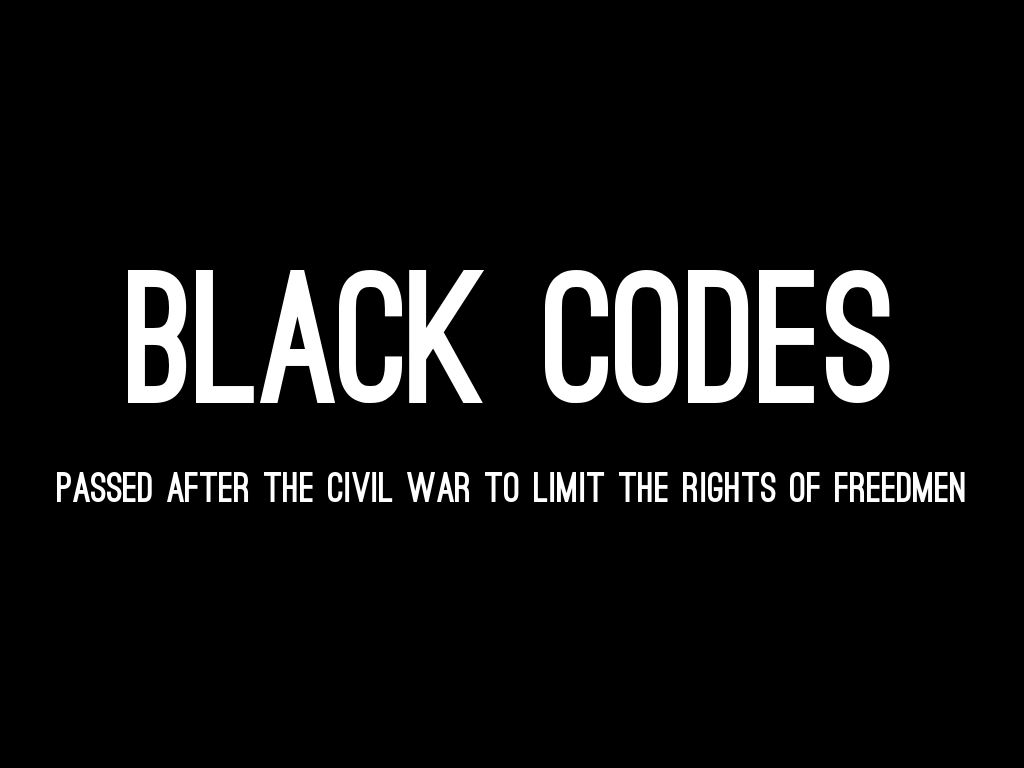
Southern states enacted black codes after the Civil War to prevent African Americans from achieving political and economic autonomy.
Point 1
Black codes attempted to economically disable freed slaves, forcing African Americans to continue to work on plantations and to remain subject to racial hierarchy within the southern society.
Point 2
Mississippi and South Carolina enacted the first black codes. Mississippi’s law required blacks to have written evidence of employment for the coming year each January; if they left before the end of the contract, they would be forced to forfeit earlier wages and were subject to arrest. South Carolina, a law prohibited blacks from holding any occupation other than farmer or servant unless they paid an annual tax of $10 to $100. This provision hit free blacks already living in Charleston and former slave artisans especially hard.
Point 3
Abraham Lincoln was the president at the time and he shocked many by proposing limited suffrage for African Americans, but he was assassinated days later. His successor Andrew Johnson would be the one to preside over the beginning of Reconstruction.
Point 4
In the years following Reconstruction, the South reestablished many of the provisions of the black codes in the form of the so-called “Jim Crow laws.”
Point 5
Black commentators have argued that the current disproportionate incarceration of African Americans, with a concomitant rise in prison labor, is comparable (perhaps unfavorably) with the historical Black Codes.
